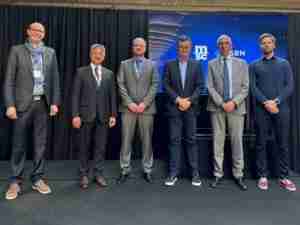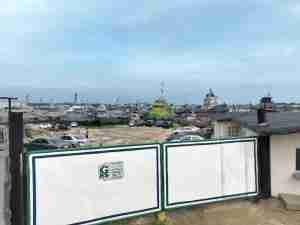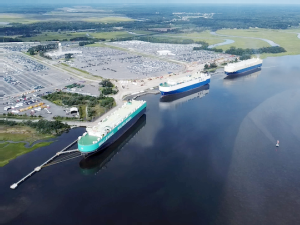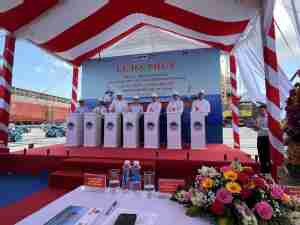Citing the Ports of Los Angeles and Long Beach's own independent economic studies over the harmful impacts of the Ports' 'Clean Truck Plan,' two major stakeholder groups today called for the Federal Maritime Commission (FMC) to review 'legal, logistical and anti-competitive impacts that will cause immediate economic harm.' A 14-page letter filed with the FMC by The National Industrial Transportation League (NIT League) and the Pacific Merchant Shipping Association (PMSA) underscores the following ramifications should the ports' new regulatory proposal were to be implemented:
- 30% of motor carriers doing business at the ports will be put out of business
- Surviving companies will have to raise rates by at least 80%
- Only those motor carriers providing services at the ports that enter into 'concession agreements' will be able to serve the ports ' with the elimination of all owner-operators being a key component of the concession agreement
- Port congestion will result from a lack of certified trucks and drivers necessary to serve the ports
'As currently envisioned, the ports' trucking plan is dressed-up as an air quality initiative but its result is an anti-competitive reorganization of the logistics industry,' said John Ficker, president of NIT League. 'There is no question that cleaner air is in everyone's interest and a goal we fully support, however the ports' plan will not accomplish this and is in reality a program designed to serve special interests, not the environment Even if you have a clean truck you would be barred if you don't follow the Ports' new logistics model.'
'This plan is a formula for a legal and logistical quagmire at the ports,' said John McLaurin, President of PMSA. 'We support clear and enforceable statewide standards for all trucks operating in California to be developed and implemented by the State of California. However, this proposal will only result in more congestion at the ports.'
PMSA and NIT League are asking the Federal Maritime Commission (FMC) to evaluate whether the ports' agreement on file with the Commission authorizes the ports to implement a program that eliminates jobs, limits competition and sets barriers to entry that would impose substantial economic hardships.
'Given the auto-pilot nature of the Ports' proceedings to date and their dismissal of consideration of any and all other options leading up to this point, the FMC is the proper federal entity to undertake this review,' Ficker noted.
In particular, the NIT League and PMSA letter to the FMC notes that the proposed 'Clean Truck Program' violates the Federal Shipping Act in three ways. First, the Ports' agreement filed with the FMC says absolutely nothing about banning independent owner operators. Second, the ban on independent owner operators is an 'unreasonable practice' under section 10(d) of the Shipping Act because there is no logical relationship between that anti-competitive ban and the environmental objectives of the program. Finally, the proposed program violates section 6(g) of the Shipping Act because, according to the Ports' own economic analysis, it will substantially reduce competition for port drayage services and at the same time drastically increase prices and reduce service by driving drayage companies out of the market.
The request to the FMC further points out that the Ports' proposal will harm many port users: shippers, truckers, carriers, marine terminal operators, and consumers across the nation. The letter underscores the point that timely action is critical, because the damage that the Ports' economic experts have predicted is already negatively affecting decisions regarding industry investments and will be even more difficult to correct if it is allowed to move forward.
'The Ports' plan doesn't solve our air quality problems, it just hands them to someone else,' said PMSA's McLaurin. 'CAR










